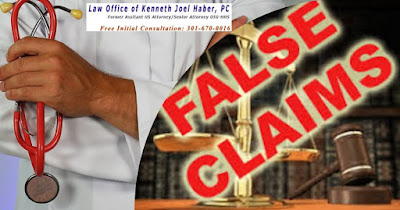The Importance of a Medical Staff Lawyer and Medicare Fraud Defense Attorney
In today's healthcare landscape, healthcare providers and organizations are under constant scrutiny from government agencies tasked with enforcing healthcare fraud laws. These laws, aim to protect the integrity of the healthcare system and prevent misuse of funds, and navigating them can be challenging for healthcare providers, which is why it is essential to have the guidance and representation of a medical staff lawyer and a Medicare fraud defense attorney.
Legal advice and assistance
Medical staff lawyers possess a deep understanding of the laws and regulations that govern the healthcare industry. They assist their clients with a wide range of legal issues that are specific to the healthcare industry, including medical staff bylaws, peer review, and credentialing. In addition, they help their clients navigate the complex legal landscape surrounding healthcare fraud and abuse. They are an essential resource for healthcare providers and organizations to help ensure compliance with the legal requirements of the industry and minimize the risk of legal action.
Defense against allegations of fraud
Medicare fraud defense attorneys specialize in defending healthcare providers and organizations against allegations of fraud and abuse in connection with the Medicare program. They possess a detailed understanding of the laws and regulations that govern the Medicare program, and assist their clients by reviewing the evidence, challenging the government's case, negotiating plea bargains, seeking alternative sentencing options, appealing court decisions, etc. They will also help their clients understand the potential consequences of fraud and abuse allegations and work with them to develop a defense strategy that is tailored to their specific situation.
Help implement compliance measures
In addition to defending against fraud allegations, medical staff lawyers and Medicare fraud defense attorneys also play a proactive role in helping their clients to implement compliance programs and procedures. These measures include regularly reviewing policies and procedures, conducting internal audits and investigations, and providing employee training on compliance-related issues. By taking these proactive steps, healthcare providers and organizations can reduce the risk of fraud and abuse and ensure compliance with the applicable laws and regulations.



Comments
Post a Comment